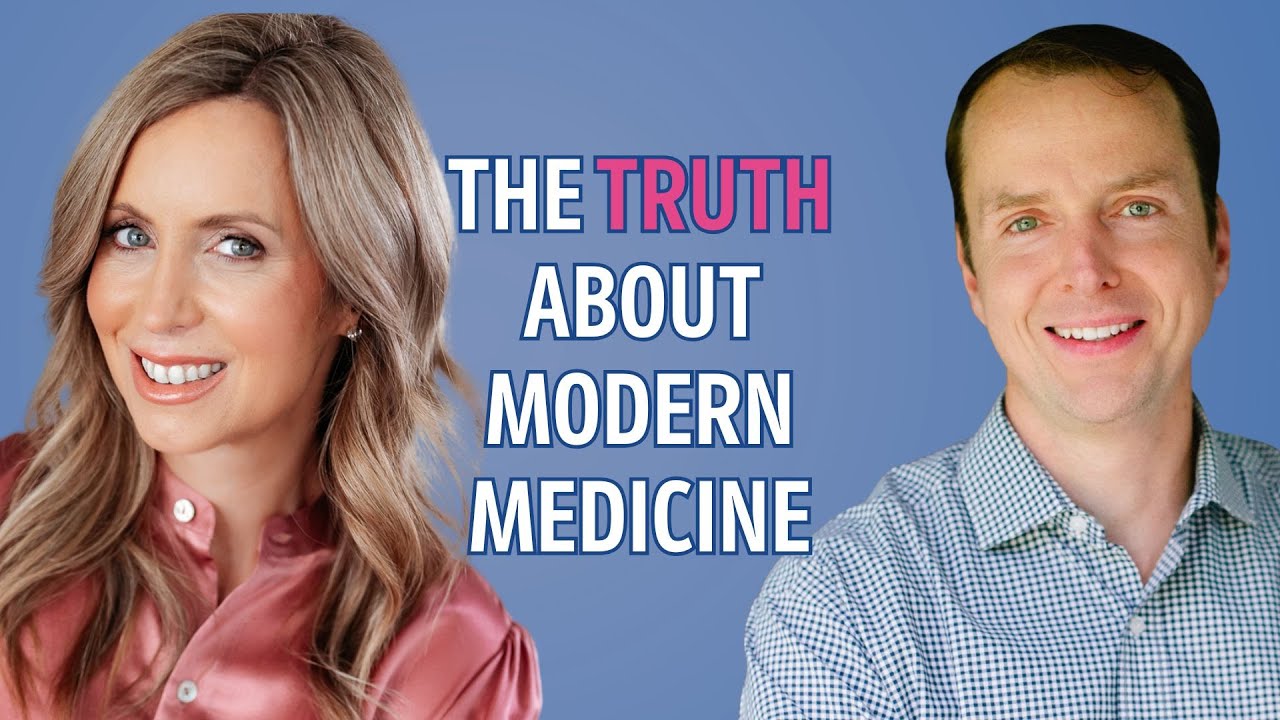- Modern medicine’s reliance on pharmaceuticals and procedures
- The impact of diet and nutrition on health outcomes
- The prevalence of insulin resistance and metabolic diseases
- The importance of holistic approaches in treatment
- Strategies for improvement in medical practice and patient care
The landscape of modern medicine is frequently shaped by its response to the complexities of human health. While pharmaceutical advances and surgical techniques have led to significant improvements in various health outcomes, a critical look reveals notable shortcomings. Many healthcare professionals often prioritize medications and procedures while overlooking the foundational elements of diet and nutrition that significantly impact overall well-being.
The pharmaceutical industry’s substantial influence has created a system where managing symptoms frequently overshadows understanding and addressing root causes. This approach may provide short-term relief but often fails to promote long-term health or recovery. Many common conditions, such as diabetes, hypertension, and even obesity, could be better managed—or even prevented—through lifestyle modifications. Relying heavily on medication can result in a cycle of ongoing prescription renewals rather than fostering genuine healing.
The significance of diet in shaping health cannot be overstated. Numerous studies have demonstrated that the food choices people make directly influence their health outcomes. Processed foods rich in sugars and unhealthy fats contribute to a myriad of health problems, including heart disease and metabolic disorders. Emphasizing whole foods—those minimally processed and rich in nutrients—can lead to marked improvements in health. Fresh vegetables, fruits, whole grains, and lean proteins form the pillars of a diet that can enhance energy levels, mood, and overall health.
Among the most critical factors affected by dietary choices is insulin sensitivity. Many individuals are unaware of their insulin response until they encounter serious health issues. Insulin resistance occurs when the body’s cells become less responsive to insulin, leading to elevated blood sugar levels. This condition is a precursor to type 2 diabetes and is often linked with other metabolic diseases. Its prevalence has surged in recent decades, correlating with an increase in processed food consumption and sedentary lifestyles.
Given the relationship between diet, insulin sensitivity, and metabolic disease, addressing these nutritional elements becomes paramount in healthcare. Many healthcare providers must improve their understanding of how food interacts with bodily processes and the impact it has on disease prevention and management. By integrating nutritional education into traditional medical training, future practitioners can better equip themselves to guide patients towards healthier lifestyle choices.
Adopting a holistic approach to health extends beyond just food choices. Stress management, adequate sleep, and physical activity are integral components. Modern medicine often overlooks the significance of these factors, focusing predominantly on physiological ailments. By incorporating psychological and social factors into treatment, healthcare can more effectively address the root causes of many diseases.
Various strategies can be employed to improve healthcare practices. First, establishing collaborative care teams that include nutritionists, psychologists, and fitness trainers can provide a comprehensive support network for patients. Such collaboration creates a more integrated approach, making it easier for patients to access diverse resources. Second, community education programs focused on cooking, meal planning, and understanding nutrition can empower individuals to take charge of their health. As people learn the importance of food choices, they become more invested in their health journeys.
Moreover, shifting the healthcare paradigms from a reactive model to a proactive one holds great promise. Many healthcare systems currently operate on a model that treats diseases after they arise rather than emphasizing preventive measures. Investing in preventive care—such as regular screenings, nutritional counseling, and educational outreach—can significantly reduce the incidence of chronic diseases.
In summary, modern medicine faces numerous challenges, particularly regarding its shortcomings in emphasizing diet and nutrition. While advancements in pharmaceuticals and surgeries have their place, addressing the underlying issues related to lifestyle and food choices is crucial. By prioritizing a holistic approach to health that integrates diet, mental well-being, and physical fitness, the healthcare system can better serve communities. Through education, collaboration, and preventive measures, a more sustainable path to health can be achieved, ultimately leading to better outcomes for patients across various populations.
*****
Source Description
Download my Lab Recommendations Guide https://app.gohighlevel.com/v2/preview/ciNfJ9f6CcYp2jgGx3Ri?notrack=true
Dr. Aaron Hartman is a triple-board-certified physician who recently wrote the book “Uncurable.”
In today’s expansive conversation, we delve deeply into the structural flaws of traditional allopathic medicine. Dr. Hartman shares how his own clinical approach has evolved and recounts Anna’s story, explaining how her experience became a turning point in his professional growth. We highlight the importance of lifelong learning, patient advocacy, and the benefits of removing restrictions to allow providers to deliver patient-centered care. We examine the legacy of the Flexner Report, the rigidity it introduced to modern medicine, and the broad potential of GLP-1s beyond weight loss. We discuss the hidden factors that shape medical errors, the effects of insurance reimbursement, the challenges of existing in the current medical system, and how fear of liability influences clinical decisions. We also explore the triangle of health and the effects of unresolved trauma.
#CynthiaThurlow #womenshealth #wellness #IF #intermittentfasting #fastingforwomen #bioindividuality #health
For more information please visit me here: https://cynthiathurlow.com/
This video is for educational and informational purposes only and solely as a self-help tool for your own use. I am not providing medical, psychological, or nutrition therapy advice. You should not use this information to diagnose or treat any health problems or illnesses without consulting your own medical practitioner. Always seek the advice of your own medical practitioner and/or mental health provider about your specific health situation.


